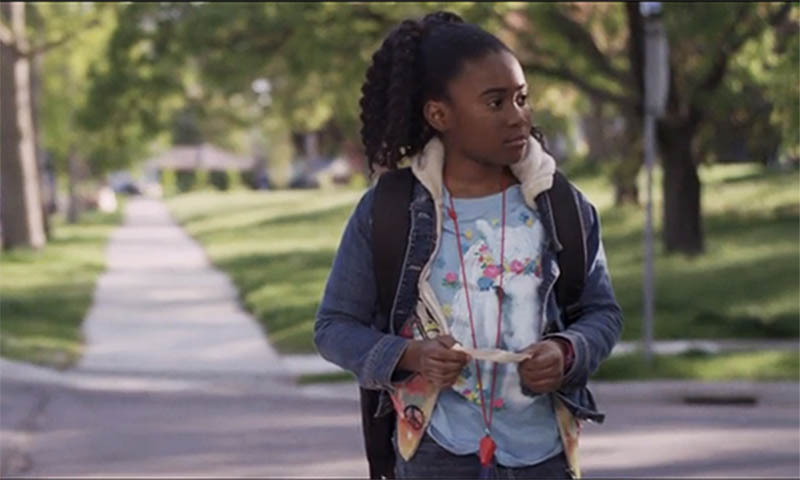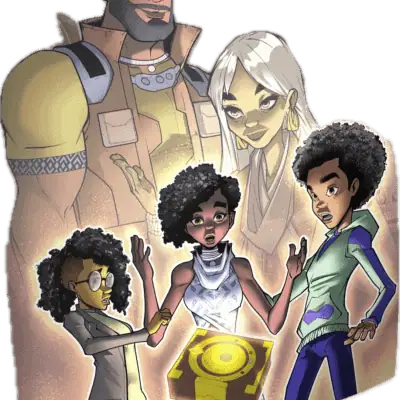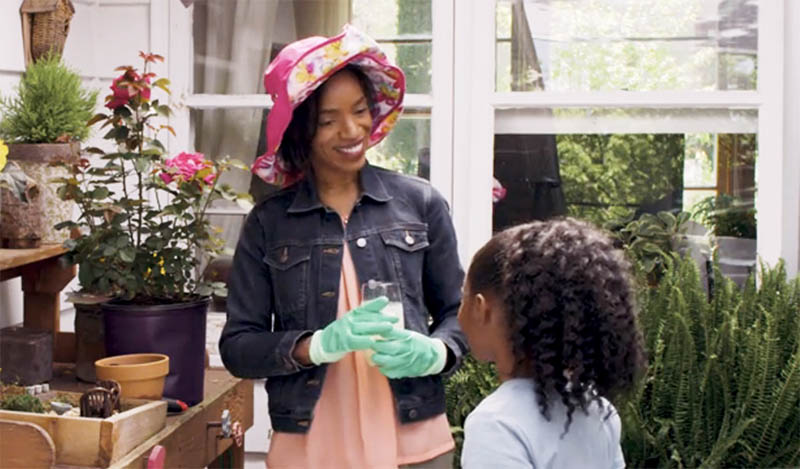
Rose from Concrete is the latest short film from writer Shantay Williams and director Santanu Chatterjee. It follows a 10-year-old girl, Rose, as she maneuvers her way through her Minneapolis hometown in a low-income based neighborhood known as Concrete. Filled with tender moments, we watch as her loving yet struggling mother must overcome certain obstacles as a single mother. With no cell phone, the mother must go through creative means in order to protect her daughter in the event that she does not return from work in a timely manner. Thus, she comes up with “The Safe Plan,” which Rose is forced to follow one evening when her mother is late from work. What follows is a heart wrenching story of love, forgiveness, and hope.
As first place winners of the Jaro PVIFF Short Film Competition, we spoke with Shantay and Santanu to learn more about their collaborative process, the most challenging and gratifying factors, and what’s next on the horizon for the Minnesota-based creatives.
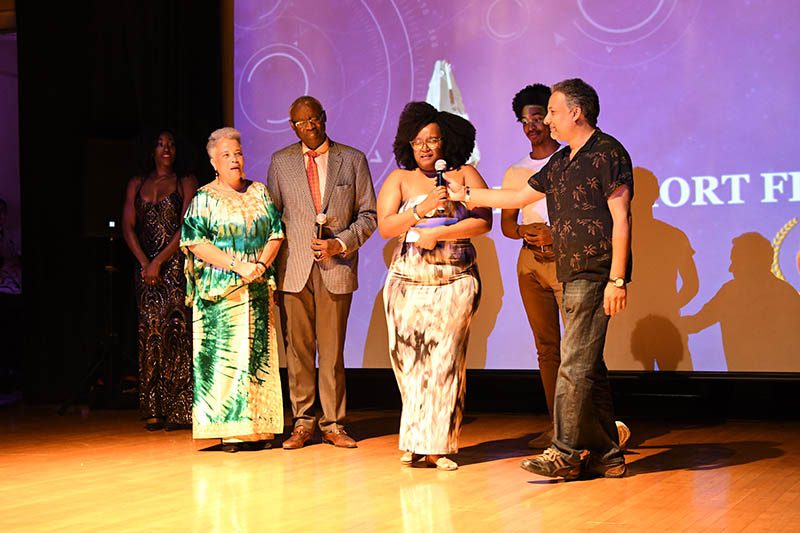
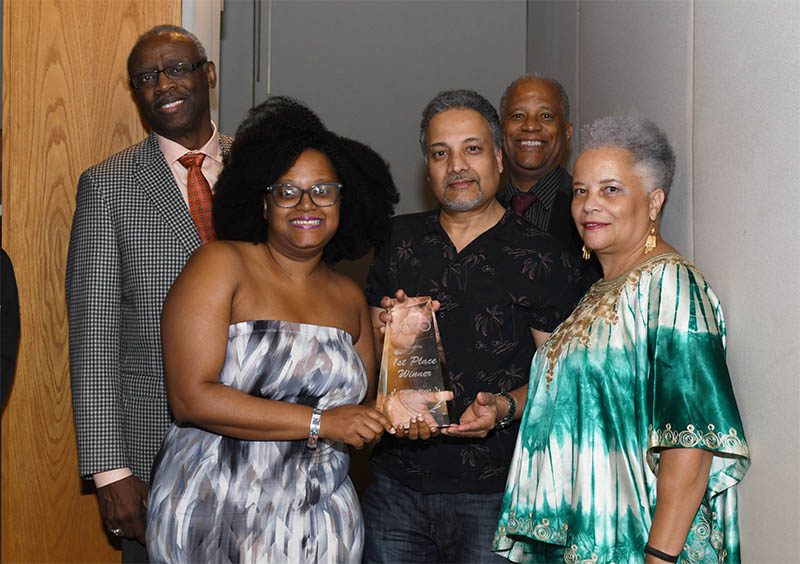
First of all, congratulations! How does it feel to be the winner of the PVIFF short film competition?
SW: Absolutely amazing, unbelievable! It’s a little surreal. This is my first piece that someone recognized and believed in.
How did the two of you come together for this project?
SW: I first met my teacher Santanu in cinematography class. I struggle with depression and it was at a point in time in my life where I didn’t know which way to go. I prayed about it, and I woke up to an email. It just so happens that it was Santanu, saying that he saw Rose from Concrete, a script that I had written. If none of the other students wanted to pick me, he wanted to do it. From there on, everything has been so organic and just flowing.
SC: I’m in charge of the directing program at Minneapolis Community and Technical College. Every year, we get a bunch of scripts come to us from the screenwriting students. And then they go to the directing students, where they’re picked up and turned into projects for that semester. So when I read Tay’s script, I said, “I hope no one picks this.” I had to leave it there for the other students, because they get first dibs. No one picked her script, and I was so happy. That’s when I sent her that email.
What was it like collaborating together?
SW: It was great because I’ve already been his student, and the simple fact that he didn’t just say, “Let me do this by myself.” He made it a point that it was my vision, too. He would ask me, “Does this look right?” Or, “Is this what you’re thinking about?” Throughout the whole process, he still remained a teacher. This is my first time being a part of making a film.
SC: It had to be a different kind of collaboration. Not that we didn’t have disagreements–we fought, creative fighting. But I’m from India. The experiences in the story are authentic to Tay. She understands that subculture much better than I do. But I get performance, I get story. I get the universals. I get why the mother and grandmother are estranged, those details. And I think that’s where the two of us worked together.
What was the most challenging and the most rewarding aspect of working on the film, both from the director’s standpoint and from you as a writer, seeing your first project come to life. Was it exactly as you pictured it?
SC: The usual challenges of production, especially since you’re financing it yourself. Everything that could go wrong goes wrong on set. After shooting for six hours, we were suddenly informed that all of those six hours had been absolutely erased. But we were able to retrieve everything.
SW: I think the most challenging was having to let go of some things that you thought you needed to be a certain way. That was the most challenging, having to rearrange your own piece of work that you think is perfect to you.
Warning: The following answers contain spoilers. Proceed at your own risk.
While writing, did you have any alternate endings in mind?
SW: I always knew Rose would die, because she was only there to serve her purpose.
SC: When we show this film, people come up to me and say, “Rose didn’t die. Rose is still alive.” They don’t want her to die. When they’ve shown other films, people got up and applauded. Dead silence after ours. They didn’t want to applaud–it was so powerful. For me, that is much more important.
Many people have a hard time accepting why bad things happen to the best of people. What would you say to the audience that just can’t accept such a tragic ending?
SW: It’s life. It may be unfortunate, but there’s always good out of something. The good thing was reuniting the mother and daughter.
SC: Despite that ending, it’s a story of incredible beauty, forgiveness, and love.
Rose’s purpose was to reunite the two generations. How do you think her death affected this newfound relationship?
SW: I can tell you the backstory, which a lot of people wanted to know more about everybody’s story. Rose was like an entity for more than just her mom and her grandmother, but for characters like Black. Even though sometimes we don’t pick the best things for ourselves, we’re not monsters. Even the bad guy might have a story which made him the way that he is. After her death, I would hope that because of that loss, that would give them more of a reason for them to ensure that they stay together. That’s what I would hope.
As far as upcoming projects are concerned, both Shantay and Santanu are excited to announce that they are working on their first full feature films. Furthermore, fans of Rose from Concrete could quite possibly receive a miniseries where the backstories of each character are explained in far more depth than a short film can provide. It’s merely a thought for now, but we’re in full support of this idea materializing. To stay up to date with the film, follow Rose from Concrete on Facebook. Head on over to Jaro Movies to stream the film now.


